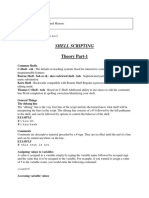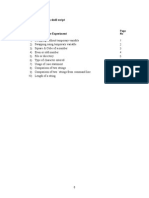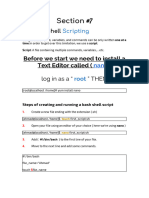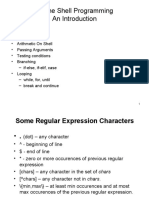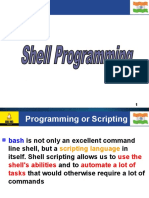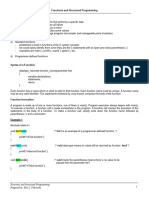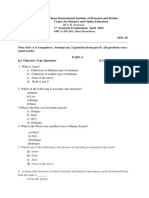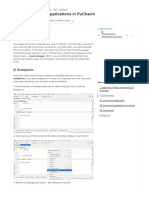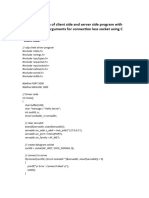0% found this document useful (0 votes)
34 views7 pagesAssignment#3
The document contains 15 sections that demonstrate various programming concepts in shell scripting like printing output, taking user input, performing operations, conditional statements, loops, and more using many built-in Linux commands.
Uploaded by
nandkishor palCopyright
© © All Rights Reserved
We take content rights seriously. If you suspect this is your content, claim it here.
Available Formats
Download as PDF, TXT or read online on Scribd
0% found this document useful (0 votes)
34 views7 pagesAssignment#3
The document contains 15 sections that demonstrate various programming concepts in shell scripting like printing output, taking user input, performing operations, conditional statements, loops, and more using many built-in Linux commands.
Uploaded by
nandkishor palCopyright
© © All Rights Reserved
We take content rights seriously. If you suspect this is your content, claim it here.
Available Formats
Download as PDF, TXT or read online on Scribd
/ 7



